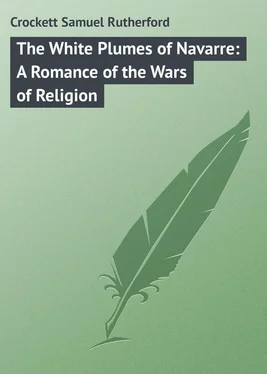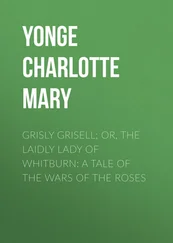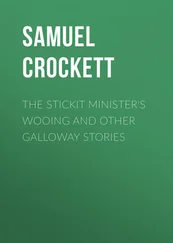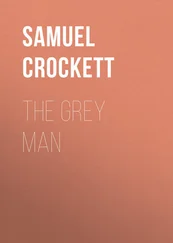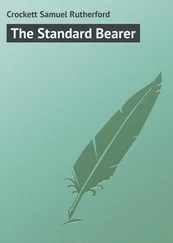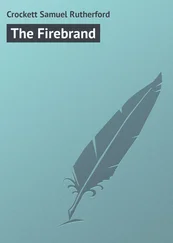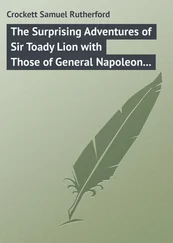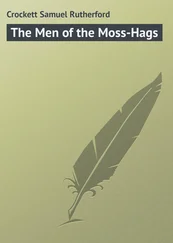Samuel Crockett - The White Plumes of Navarre - A Romance of the Wars of Religion
Здесь есть возможность читать онлайн «Samuel Crockett - The White Plumes of Navarre - A Romance of the Wars of Religion» — ознакомительный отрывок электронной книги совершенно бесплатно, а после прочтения отрывка купить полную версию. В некоторых случаях можно слушать аудио, скачать через торрент в формате fb2 и присутствует краткое содержание. ISBN: , Жанр: foreign_prose, на английском языке. Описание произведения, (предисловие) а так же отзывы посетителей доступны на портале библиотеки ЛибКат.
- Название:The White Plumes of Navarre: A Romance of the Wars of Religion
- Автор:
- Жанр:
- Год:неизвестен
- ISBN:http://www.gutenberg.org/ebooks/33215
- Рейтинг книги:3 / 5. Голосов: 1
-
Избранное:Добавить в избранное
- Отзывы:
-
Ваша оценка:
- 60
- 1
- 2
- 3
- 4
- 5
The White Plumes of Navarre: A Romance of the Wars of Religion: краткое содержание, описание и аннотация
Предлагаем к чтению аннотацию, описание, краткое содержание или предисловие (зависит от того, что написал сам автор книги «The White Plumes of Navarre: A Romance of the Wars of Religion»). Если вы не нашли необходимую информацию о книге — напишите в комментариях, мы постараемся отыскать её.
The White Plumes of Navarre: A Romance of the Wars of Religion — читать онлайн ознакомительный отрывок
Ниже представлен текст книги, разбитый по страницам. Система сохранения места последней прочитанной страницы, позволяет с удобством читать онлайн бесплатно книгу «The White Plumes of Navarre: A Romance of the Wars of Religion», без необходимости каждый раз заново искать на чём Вы остановились. Поставьте закладку, и сможете в любой момент перейти на страницу, на которой закончили чтение.
Интервал:
Закладка:
Only to Francis Agnew had the Fool talked equally and with unbound heart. Even Claire did not guess what lay beneath this folly of misapplied texts and mirth-provoking preachments. There can be no better mask for real fanaticism than the pretence of it. And whereas Francis Agnew had been a gentleman and a diplomat always, his henchman, Jock the Fool, was a fanatic of the purest strain, adding thereto a sense of humour and probably a strain of real madness as well.
"Come up hither, Jean-aux-Choux!" cried the lads on the barricades. "Turn a somersault for us, Cabbage Jock!" shouted a fellow-countryman, on his way to preferment in the Scots Guard, who in the meanwhile was filling up his time by fighting manfully against the King's troops.
"Lick the tip of your nose, Jock!" roared yet a third; "waggle your ears! Ah, well done! Now jest for us, and we will give you a good drink – Macon of the fourth year – as much as you can take down at a draught. This Guisarding is dry work."
The streets were full of excited men, cheering for Holy Faith and the Duke of Guise. They cried that they were going to kill the King, and make that most Catholic Prince, the Head of the League, King in his stead.
The Protestants in Paris had fled or hidden. There were great fears of a second St. Bartholomew. But those who remembered the first, said that if that had been intended, there would be a deal less noise and a deal more private whetting of daggers and sword-blades.
Once the Professor of Eloquence left them for a moment in order to run upstairs to tell his housekeeper and her husband that they were to hold his house against all authority save that of the King, and not yield too soon even to that. He might be away some time, he said.
The Abbé John, whose housekeeping was of a desultory sort – consisting chiefly in going to see his uncle, the Cardinal d'Albret, when he was in need of money or of the ghostly counsel of a prince of the Church – made no preparations for flight, save to feel in his breeches pocket to make sure that he had his gold safely there.
"My creditors can wait, or importune my uncle, who will have them thrown in the Seine for their pains," said the young student of the Sorbonne easily; "and as for my dear gossips, they will easily enough console themselves. Women are like cats. As often as they fall, they fall upon their feet!"
It was a strange Paris which they passed through that day – these four. The Professor of Eloquence went first, wearing the great green cloak of his learned faculty, with its official golden collar and cuffs of dark fur.
That day Paris was not only making the history of the present, but was unconsciously prophesying the future – her own future. Whenever, after that, the executive grew weak and the people strong, up came the paving-stones, and down in a heap went the barrels, charettes , scaffoldings, street-doors. It was not only the Day of the Barricades, but the first day of many barricades. Indeed, Paris learned the lesson of power so well, that it became her settled conviction that what she did to-day France would homologate to-morrow. It was only the victory of the "rurals" in the late May of 1871 which taught Paris her due place, as indeed the capital of France, but not France itself.
Dr. Anatole's cloak was certainly a protection to them as they went. Caps were doffed as to one of the Sixteen – that great council of nine from each of the sixteen districts of Paris, whose power over the people made the real Catholic League.
Dr. Anatole explained matters to Claire as they went.
"They have long wanted a figure-head, these shop-keepers and booth-hucksters," he said bitterly. "The Cardinal leads them cunningly, and between guile and noise they have so intoxicated Guise that he will put his head in the noose, jump off, and hang himself. This King Henry of Valois is a contemptible dog enough, as all the world knows. But he is a dog which bites without barking, and that is a dangerous breed. If I were Guise, instead of promenading Paris between the Queen-Mother's chamber and the King's palace of the Louvre, I would get me to my castle of Soissons with all speed, and there arm and drill all the gentlemen-varlets and varlet-gentlemen that ever came out of Lorraine. There would I wait, with twenty eyes looking out every way across the meadows, and a hundred at least in the direction of Paris. I would have cannons primed and matches burning. I would lay in provisions to serve a year in case of siege. That is what I should do, were I Duke of Guise and Henry of Valois' enemy!"
At the Orleans gate Jean-aux-Choux, in waiting with the horses (bought, stolen, or strayed), heard the conclusion of the Professor's exposition.
"Let Wolf Guise eat Wolf Valois, or Wolf Valois dine off Wolf Guise – so much the better for the Sheep of the Fold," he commented freely, as became his cap-and-bells, which in these days had more liberty of prophecy than the wisdom of the wisest.
CHAPTER VI.
THE ARCHER'S CLOAK
As they left Paris behind and rode down the Orleans road, it soon became evident that they had changed their surroundings. Men-at-arms, Scots Guards, with great white crosses on their blue tabards, glared at the four suspiciously. Cavaliers glanced suspiciously as they galloped past. Some halted, as if only prevented from investigating the circumstances by the haste of their mission. Gay young men, on passaging horses, half drew their swords and growled unintelligible remarks, desisting only at the sight of Claire Agnew's pale face underneath her hood.
"What can be the matter?" they asked each other. "Why do we, who passed through swarming Paris in the flood-tide of rebellion, who scrambled on barricades and were given drink by the King's enemies – why should we now be looked askance at, riding peaceably Orleans-ward on our own hired beasts?"
None found an answer, but deep in every heart there was the conviction, universal in such a case, that somehow it was the other fellow's fault. It was Cabbage Jock who solved the mystery.
"In Rome you must do as the Romans," he said; "in Babylon's cursed city, though an abomination to do obeisance to the great whore (as sayeth the Scripture), I have found it of remarkable service to don her uniform occasionally – even as Paul did when he took shelter behind his Roman citizenship. It is that green furred gown of yours, Sir Professor! These be King's men, hasting after the Master of the Mignons. I'll wager the nest is empty and the bird flown from under the pents of the Louvre."
"And what shall I do?" said the Professor of the Sorbonne, looking regretfully at the fine Spanish cloth and rich fur. "Am I to cast away a matter of twenty good golden Henries?"
"By no means," said Cabbage Jock; "I came away somewhat hastily, to do you service. I have no saddle saving these two millers' bags. I will fold the good gown beneath the two, and so sit comfortable as on an ale-house couch, while you will ride safe – "
"And plumeless as a docked parrot," said the Abbé John, who was now sufficiently far from Paris to begin to laugh at his master – at least a little, and in an affectionate way.
The Professor looked disconsolate enough as he suffered his fine cloak to be stripped from his back.
"Ne'er mind," quoth Jean-aux-Choux, "we will soon right that. I know these King's men, and 'tis the Pope's own purgatory of a warm day. There are inns by the wayside, and wherever one is held by a well-made hostess, who lets poor puss come to the cream without so much 'Hist-a-cat-ing,' I'll wager they will leave their cloaks in the hall. So we will come by a coat of the King's colours, all scallops and Breton ermines in memory of poor Queen Anne."
"I will not have you steal a cloak, sirrah," said the Professor; "indeed, I am nowise satisfied in my mind concerning these horses we are riding."
Читать дальшеИнтервал:
Закладка:
Похожие книги на «The White Plumes of Navarre: A Romance of the Wars of Religion»
Представляем Вашему вниманию похожие книги на «The White Plumes of Navarre: A Romance of the Wars of Religion» списком для выбора. Мы отобрали схожую по названию и смыслу литературу в надежде предоставить читателям больше вариантов отыскать новые, интересные, ещё непрочитанные произведения.
Обсуждение, отзывы о книге «The White Plumes of Navarre: A Romance of the Wars of Religion» и просто собственные мнения читателей. Оставьте ваши комментарии, напишите, что Вы думаете о произведении, его смысле или главных героях. Укажите что конкретно понравилось, а что нет, и почему Вы так считаете.
